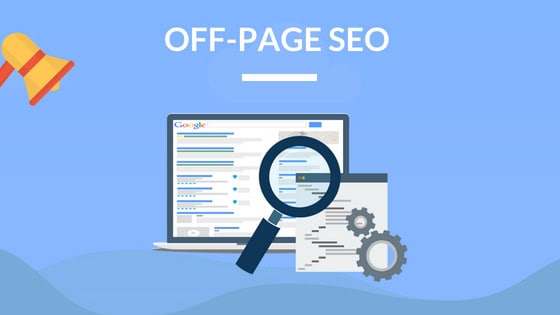
E-Commerce and Off-Page SEO: Even with superb products, running an e-commerce store may be aggravating when sales fall short of expectations. Although on-page SEO is important, increasing exposure and generating traffic depends much on off-page SEO. In this guide, we will explore key tactics including creating backlinks, building influencer relationships, and encouraging social media interaction. Digital PR and customer reviews also help to boost brand credibility and power. These off-page search engine optimizers increase stores’ ranking and draw more natural traffic. By focusing on off-page SEO, businesses can enhance trustworthiness and achieve long-term success. The result? Increased sales and growth.
When people talk about SEO, they usually think about optimizing what’s directly on your site — keywords, product pages, and meta descriptions. Off-page SEO, however, focuses on everything that happens outside your website that impacts your rankings, credibility, and visibility. Think backlinks, brand mentions, influencer partnerships, and social signals — all of these tell Google (and potential customers) that your store is trustworthy and authoritative.
For e-commerce, it’s the trust factor that’s crucial. It’s about obtaining other reputable sources to support your business, not only about maximizing your pages for view. Correct off-page SEO improves the reputation of your website and increases natural traffic, which finally results in more sales.
You might be wondering: “Why not just stick to the on-page stuff? Why is off-page SEO so important?” Here’s why:
So how do you build an off-page SEO strategy that’ll actually work for your e-commerce store? Here are some unique, actionable strategies that you may not often hear about in other articles.
Influencer marketing is huge in the e-commerce world, but it’s more than just about making a post on Instagram. It’s about building long-term relationships with influencers in your niche. Influencers don’t just promote your products — they give you credibility and link back to your store, improving your search rankings.
Here’s how you can approach it:
The power of social media in off-page SEO cannot be overstated. But it’s not just about posting and hoping for likes. Focus on creating content worth sharing that drives engagement and mentions. This isn’t just about the number of followers; it’s about quality interactions.
Here’s how to get started:
Guest blogging isn’t just for building backlinks — it’s a powerful way to introduce your brand to a new, highly relevant audience. Writing for blogs within your niche gives you the opportunity to link back to your product pages, helping you rank higher for relevant keywords.
Additionally, getting featured in product roundups (e.g., “Top 10 Best Gadgets for 2025”) can have a massive impact on both visibility and credibility. Websites and blogs that feature your products can generate traffic, backlinks, and customer trust all in one go.
Customer reviews are one of the most underutilized aspects of off-page SEO. Reviews affect your whole brand power on the internet, not only about your product sites. Reviewing your products on third-party websites—such as Amazon, Trustpilot, or even social media—helps your SEO signals and supports the validity of your store.
Here’s how you can leverage reviews for off-page SEO:
E-commerce stores often overlook the power of digital PR. Media mentions, especially on authoritative news sites, are gold in the world of off-page SEO. When high-profile media outlets cover your store, it’s a huge signal to search engines that your business is worth paying attention to.
Here’s how to get featured:
When you combine on-page SEO and off-page SEO, you’re creating a foundation for your e-commerce store’s long-term success. Off-page SEO’s strategies, such as relationship building, attracting media coverage, and enhancing brand mentions over time, aren’t usually one-time strategies but rather an overlay on techniques to improve your store’s authority, trust, and search engine visibility.
In simple terms, you are promoting long-term brand loyalty, consumer trust, and organic growth instead of just creating temporary traffic noise.
Standing out in a crowded e-commerce market requires more than just better product pages. Off-page SEO done strategically provides credibility, influence, and reach across the web. Off-page SEO can be influencer relations, product roundups, social media engagement with your buyers, and user reviews. Even if you’re engaging with users from another site, it’s still off-page SEO. Off-page SEO does not just affect your results; it also helps create more organic traffic and aid conversions. Off-page SEO positively impacts your bottom line by increasing your trust and engagement with your audience, all while establishing a long-term relationship that emphasizes your company’s values, which translates to more sales and consistent growth. So don’t stop with improving your website; leverage off-page SEO and watch how fast your e-commerce store starts to rise.
Is off-page SEO still effective for SEO?
Yes, off-page SEO is still highly effective — it builds authority, trust, and visibility that search engines (and customers) care about.
Guest blogging means writing content for other websites in your niche to gain exposure, build backlinks, and drive targeted traffic.
Digital PR is the practice of getting your brand featured in online media to earn high-quality backlinks and boost your SEO performance.
How to find blogs that accept guest posts?
You can find them by searching Google with terms like “your niche + write for us” or using tools like BuzzSumo and LinkedIn.
Get a free, personalized video audit of your website – a quick 5-minute review delivered to your inbox within 24 hours, full of easy-to-use tips.
June 11, 2025